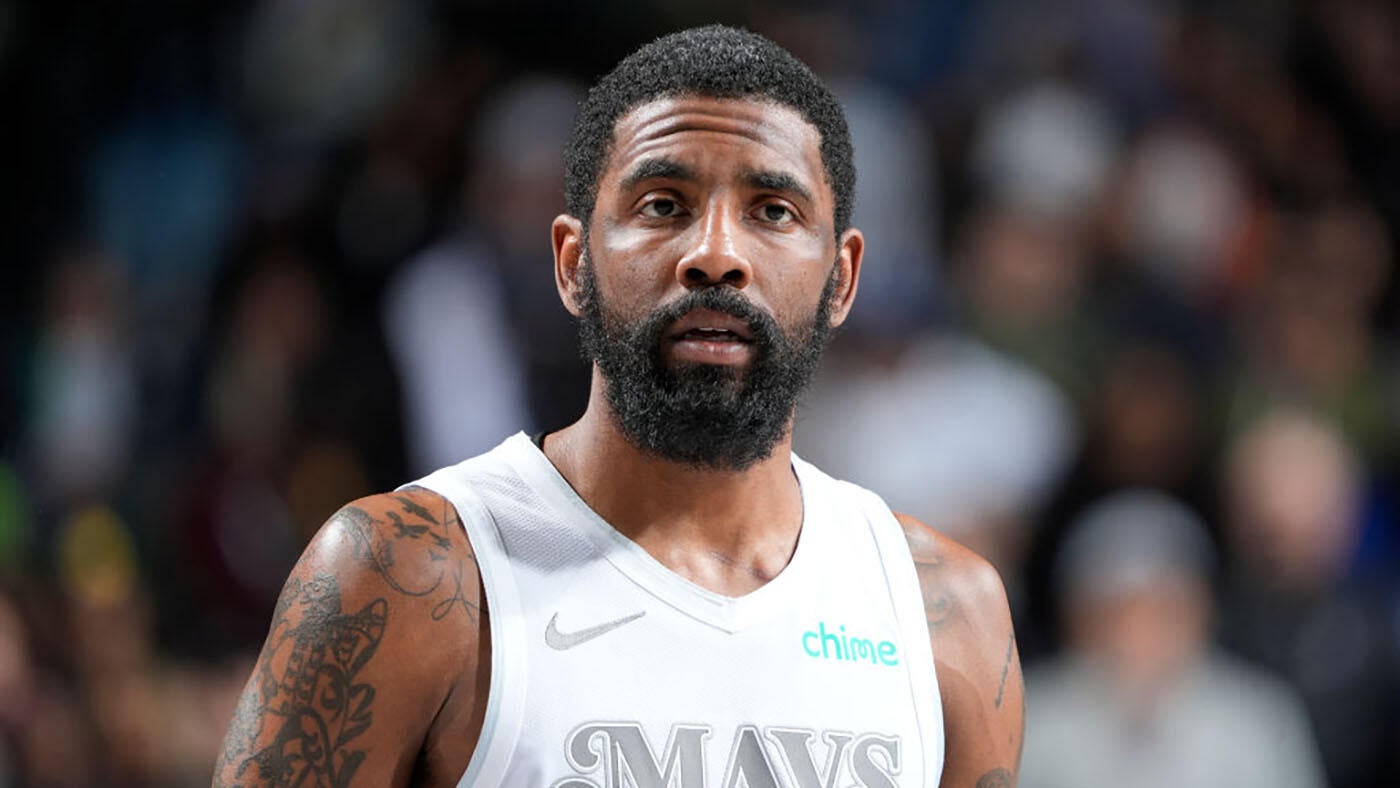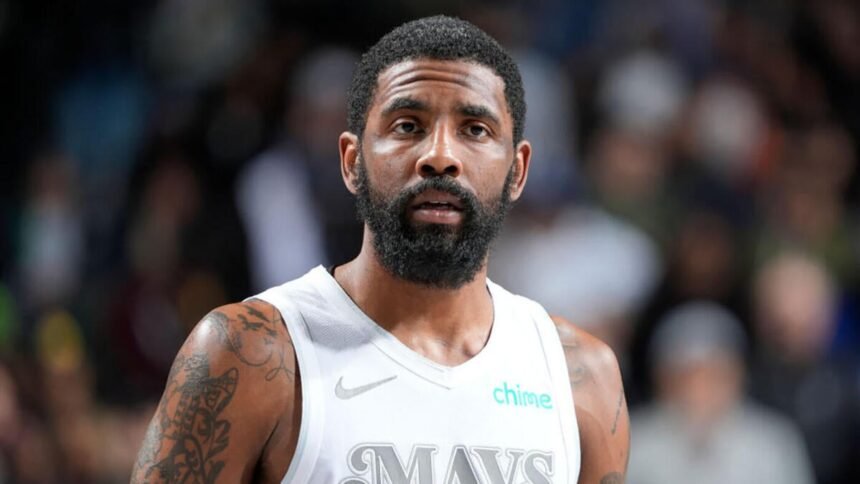
When an NBA player signs a new contract, in the social media post that gets sent announcing it, right after the team name comes the number of years and for how much money they were signed to. It has become second nature, not just in the NBA, but across all professional sports, and even college now that NIL money has become a factor.
The amount of money athletes get immediately becomes a talking point across social media and on sports shows. Everyone assesses if someone got too much from a team or if the contract is a “steal” or “bargain.” And when players underperform, their contract usually always gets brought up in criticizing them. The same goes for if a player is outperforming their contract, too. But Dallas Mavericks superstar Kyrie Irving wonders if that information should be public at all.
“I find it very interesting that — of course people will know what CEOs of Fortune 500 companies make, they’ll know different avenues of 9-to-5 [jobs] in terms of the contract structure, but when it comes to sports, it’s like you know exactly the pay scale, the details of it, and then it gets discussed as though there isn’t any real live consequences to that,” Irving said on his Twitch livestream. “I wonder if people know how much that puts a target on someone’s life. It helps the overall growth of the sport, the sexiness of it, like, ‘Oh guess what Kai or so-and-so is making this, record-breaking historic numbers’…but I look at it as, is it too much information at some point though?”
Irving continued.
“Because when does it become comfortable for me? If you know exactly what I’m making, there’s an awkwardness to that — I love the engagement when we see [Devin Booker] gets X amount of money, richest deal ever, but it gets framed as if it’s the richest deal ever but at the same time, there is a bigger financial situation that’s going on.”
Knowing the financial side of the NBA used to be a niche topic that not many people understood or even took an interest in knowing. But in the last 10-15 years, understanding the ins and outs of the salary cap, knowing how much teams can afford and what deals players could get has become just as popular of a topic as just dreaming up where a player might sign. Now, we’ve got entire websites dedicated to breaking down every aspect of the salary cap, and there’s a genuine interest from fans to know that information. You could even argue that no other league’s fanbase is quite as invested in knowing salary cap information as NBA fans, for better or worse.
But with all that knowledge comes the criticism aimed at players, as Irving alluded to, or just the feeling of not wanting to divulge personal information like that.
“From a media standpoint sometimes it could get a little intrusive,” Irving said. “When people know what you make and then ask somebody like, ‘Hey I saw that you got this negotiating your contract, how did you get it done?’ It’s like, bro, that’s personal. That’s very personal. So then it could be extracted as though it’s something different. I’m not complaining here, these are just things I’ve learned to look at.”
An important distinction in this, though, is that teams don’t make player contracts public, neither does the NBA. In fact, announcing contract terms publicly is a violation of the league’s CBA, which prohibits teams, players, agents, the NBPA, and the NBA from publicly disclosing that information. Though given that agents sometimes will themselves announce what their clients contract is on social media, it’s clearly not enforced.
Putting that information out there has been a product of reporters getting information from agents or teams, who share the contract figures with the intention of making it public. So in some regard, players are involved in the process of the public knowing how much they get paid. And as much as it probably does feel like an invasion of privacy, it is an aspect that fans care about, which certainly comes with pros and cons.







